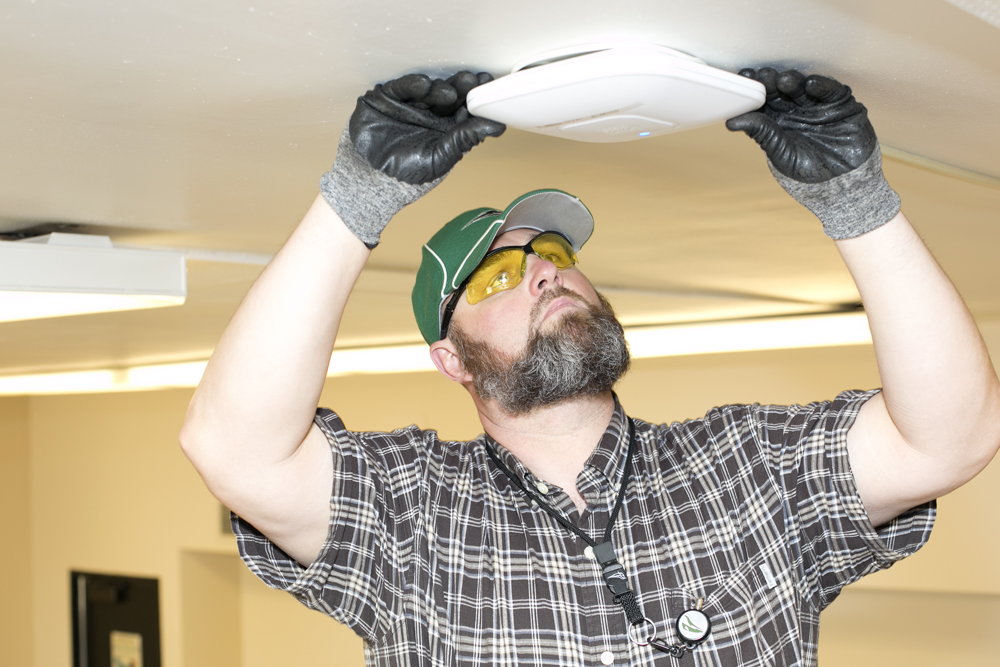Campus Conservation Nationals, the biggest competition in the world for water and energy reduction programs, is now in its fourth year and has helped motivate hundreds of thousands of students to work together to decrease the impacts of climate change and reduce consumption of water and energy.
Starting in early February and running approximately three months, CCN allows participating schools to hold three-week competitions on their campuses anytime during the competition window. Before the challenge starts, water and energy consumption are recorded in the residence halls in a base period that will be included in the event. The goal is to decrease energy and water use while increasing composting and recycling.
The competition at Portland State started on February 17 and ran through March 9, giving students three weeks to meet their goals: decreasing the amount of water and electricity used by student residence halls and spreading awareness and education about sustainability throughout campus.
“It was great to see so many people get involved this year,” said Kristen Purdy, EcoReps coordinator for the Sustainability Leadership Center. “We had good turnouts at our events and were able to have some really educational conversations with students in the PSU community.”
EcoReps, a year-long program that PSU residents can get involved in to learn about sustainability and help guide other students interested in going green, competed in CCN for the third year in a row this winter.
In the 2014 challenge, the EcoReps tracked progress in six residence halls—Ondine, Broadway, Blumel, Montgomery, St. Helens and Stephen Epler—making a big leap from the past two years of the competition, in which they were only able to track two halls the first year and three halls the second year.
Each building was monitored weekly by PSU’s utility manager and progress was logged on a dashboard provided by the CCN website.
With the challenge now at its end, the EcoReps and dorm residents can proudly show off their accomplishments. All six residence halls showed a drop in energy consumption, the largest being Blumel Hall with a 25.7 percent reduction in electricity usage. According to the CCN dashboard, Blumel saved a grand total of 38,043 kilowatt hours during the challenge.
“Bringing down the numbers wasn’t even the main goal,” said Heather Spalding, sustainability leadership and outreach coordinator at PSU. “It’s more about education and building connections, but if we do our job and educate enough students then the numbers should go down as well.”
The EcoReps hosted five events throughout the competition period to help raise awareness and encourage students to get involved. The first of which was the Candlelight Dinner, an event that had students eating by candlelight at Victor’s in Ondine to save electricity, and offered the chance to win some prizes and take a sustainability pledge.
Next up was the Conservation Conversation, an event that had EcoReps on hand to field questions and talk about CCN, and Logical Laundry, a workshop that taught residents how to make their own detergent.
Pedal for Power took place at Victor’s in Ondine, and allowed students to hop on a bike and see for themselves just how much energy is needed to make a smoothie for breakfast.
Rounding out the competition was the Blackout Game Night, celebrating the end of the challenge and giving residents the chance to unplug for the night and play some board games with friends.
“The events were a really fun way for us to reach out to residents,” said Olivia Clarke, EcoRep and freshman at PSU double-majoring in French and English. “For example, we had a trivia wheel at the Conservation Conversation so students who stopped to talk to us had the chance to spin the wheel, learn some trivia on going green and maybe even win a prize.”
Next year the EcoReps hope to work closer with University Housing and Residence Life for outreach and get more resident advisers involved.
“We had a couple RAs show up to one of our events, the Conservation Conversation,” Purdy said. “They brought a lot of their residents with them and we really realized what great resources they are and how awesome it would be to work with them more in the future.”






